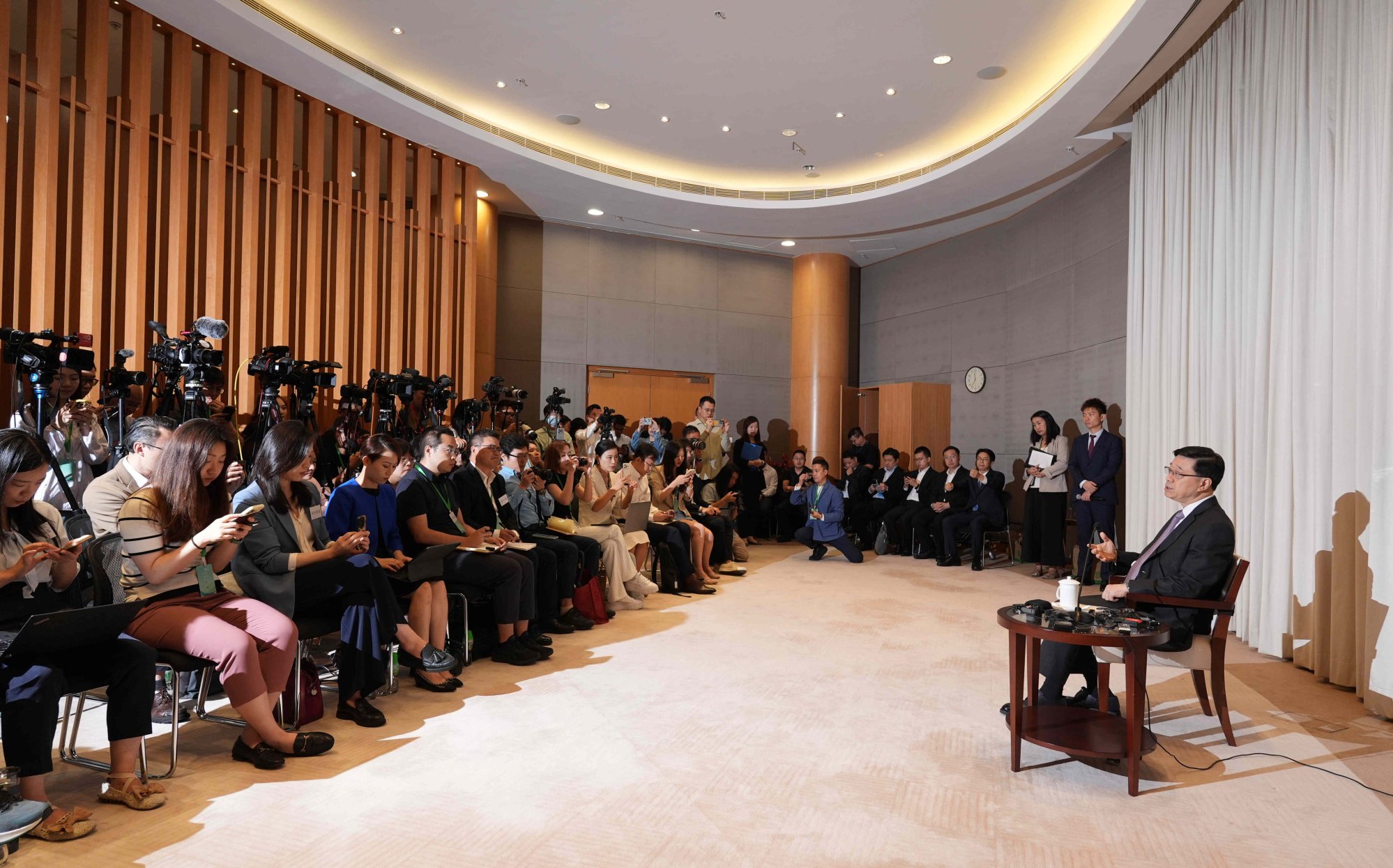
Biggest Hong Kong challenges are political problems, not financial troubles: city leader
- Issues stemming from ‘power play between nations’ exert ‘biggest pressure’ on Hong Kong as a part of China, John Lee says
Hong Kong’s biggest challenges ahead are “political problems” rather than financial troubles, the city’s leader has said, citing external forces’ attacks on the legal system and interference in the judicial process.
“The biggest challenge for Hong Kong as an international financial hub is not financial problems, but political problems,” Lee said, addressing a question about the city’s opportunities and challenges.
Without naming specific countries, he added: “Some challenges are posed by external forces, such as those attacking our legal system, intervening in our judicial processes.
“For cases on trial, politicians and governments from overseas seek to pressure and intimidate judicial officials with so-called sanctions. This is disrespectful to the rule of law.”
Lee defended the city’s judicial decisions as “open and honourable”.
His remarks came as departing British judge Jonathan Sumption’s attack on the city’s rule of law drew harsh criticisms from the central government and Hong Kong authorities.
Sumption, who resigned as a non-permanent judge of the Court of Final Appeal, wrote in an opinion piece that Hong Kong was “slowly becoming a totalitarian state” and the rule of law was “profoundly compromised in any area about which the government feels strongly”.
Some of his views were echoed by the European Union’s executive arm in its annual report on Hong Kong issued on Thursday, in which it claimed residents’ rights and freedoms continued to be eroded while the Beijing-imposed national security law was being used to stifle dissent.

Lee also addressed concerns over the city’s status as an international financial centre, saying that Hong Kong’s prowess extended beyond its stock market.
He noted the city had served as a platform for companies to raise capital by bridging its listing rules with the mainland’s. The city was also home to three-quarters of the world’s top 100 banks, had a vibrant insurance industry and an active bond market, he said.
But Lee admitted that such robust financial infrastructure could be affected by fluctuations in international politics, adding that some investors had been pulling out of funds.
“It appears to me to be a political gesture to remove [money] away from Hong Kong, not for economic reasons, but for political reasons,” Lee said.
But the city leader said investors should be able to look past political turbulence when making long-term investments.
“There may be ups and downs, but in the long run, political influence and undue influence on markets won’t last long. When investors look at markets in the long term, they know the market is always right. Politics doesn’t affect the market long term,” Lee said.
He added that he was confident that Hong Kong’s connectivity with both the mainland and the rest of the world would prove to be irreplaceable in the market.
Secretary for Financial Services and the Treasury Christopher Hui Ching-yu told reporters in a separate briefing that Hong Kong would develop its financial services along global trends to diversify assets, as well as pivot to green finance and the digital economy.
The treasury minister described the city’s connectivity with the mainland and the rest of the world as “two sides of a coin” as they were mutually reinforcing the city’s position as an international financial centre.
“[W]hat we try to do is reinforce our connectivity with the mainland, because after all, in that context, we are going to bring in more investors globally to Hong Kong,” Hui said.
The city has three mutual market access programmes with the mainland, where investors in Hong Kong and overseas can access certain stocks, bonds and exchange-traded funds on the mainland.

